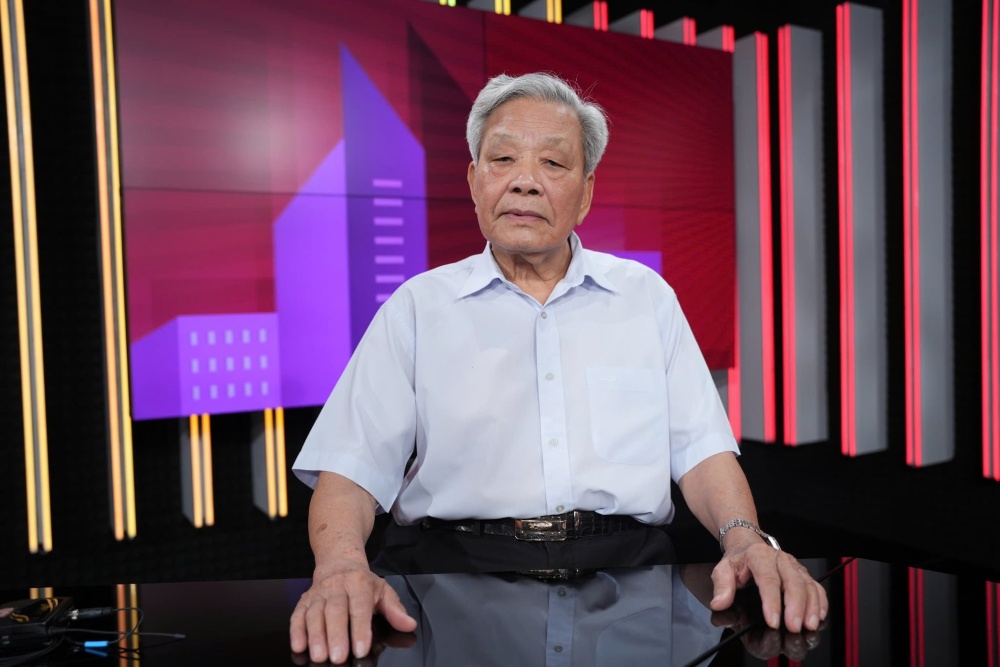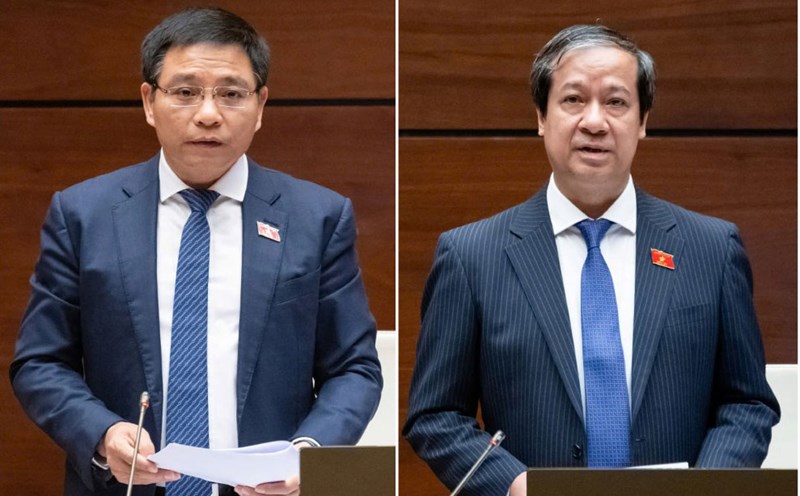Consider improving the university model in universities
In the discussions on the development of the draft revised Law on Higher Education organized by the Ministry of Education and Training (MOET) in recent times, one of the notable opinions was the proposal to remove the model of national and regional universities.
Deputy Minister of Education and Training Hoang Minh Son said that the two-level university model has been discussed a lot. However, he affirmed the view that national universities and regional universities are managed by the state, with their own mission and position. "We are talking about internal governance, not the issue of abolishing national and regional universities. We must see how to improve that model" - Deputy Minister Son said.
Discussing with Lao Dong about the proposal to remove the 2-level university model when developing the draft revised Law on Higher Education, Prof. Dr. Le Quan - Director of Hanoi National University said that the unit has not received documents from the Ministry of Education and Training.
Meanwhile, National Assembly delegate Pham Van Hoa (Dong Thap delegation) said that it is necessary to transfer Hanoi National University and Ho Chi Minh City National University to the Ministry of Education and Training for management.
"These two national universities are parallel, if they are independent of the Ministry of Education and Training, how can they be managed by the State? I think we should transfer all universities across the country to the Ministry of Education and Training for management. This will eliminate the model of national and regional universities," the delegate said.
According to the delegate, currently, there are universities managed by the province, universities managed by the ministry, universities in universities, universities under national universities... but "one of a kind", unlike any other country in the world.
The current operation and management according to the "double-level" model of national and regional universities are neutralizing the advantages of the multi-disciplinary university model, raising many problems with university governance.
Implementing decentralization, according to the delegate, these two-level models are creating too many intermediary levels. It is necessary to have universities in one unit to make it easier for equality and university autonomy.
"I fully support the principals' proposals. It is time for us to greatly reform the higher education system and need unity, synchronization and flexibility to meet the needs of the new era.
The current two levels are useless, only increasing the management apparatus. If the title is needed, the Ministry of Education and Training should issue regulations for universities that meet national standards and rank schools according to the criteria applied by other countries," said the delegate.
According to the delegate, this is to create competition for educational quality between schools. In addition, it is necessary to give schools autonomy, from enrollment to finance. The school that does well will be rated higher, attracting more students and tuition fees.

enhancing substantial autonomy
Also talking about this issue, another National Assembly delegate emphasized the need to reform the governance mechanism, promote decentralization, and enhance substantive autonomy so that this model becomes a regional and international academic center.
Mr. Nguyen Tuc - Member of the Presidium of the Central Committee of the Vietnam Fatherland Front - said that if Vietnam's education orientation is towards world standards, it should refer to the model of universities in other countries, that is, in universities, there are only institutes, faculties and those in charge of administration.
According to him, it is time to frankly look back at reality and cut off intermediaries that hinder the development process. If we agree to merge smaller universities together, we will both reduce management stages and improve capacity worthy of world schools.
Mr. Nguyen Tuc said that the model of two levels and regional universities makes it difficult for many universities to be autonomous like other independent schools. Therefore, it is necessary to be more open about the name and mechanism because the final product is evaluated by the state, enterprises, professional organizations, and society.
Strengthen the rights of universities and regardless of national or regional universities. If the training quality is good and reputation is guaranteed, learners will naturally come, businesses will place orders and vice versa.
National Assembly delegate Trinh Thi Tu Anh (Lam Dong delegation)
The consideration of removing or restructuring the model of national and regional universities is necessary, but needs to be carefully considered based on factors.
Abolishing the two-level model, or at least reducing the management role of national/regional universities, will help member schools have the same autonomy as independent universities. This is in line with the orientation of the revised Law on Higher Education, emphasizing autonomy associated with accountability and quality assurance.
Another reason is that it will suit international trends. The transition from the "university in university" model to the university model integrated with schools (schools/college) without separate legal status will help Vietnam better integrate with the advanced higher education system. This also helps schools easily cooperate internationally and attract investment.
When merging small member schools or restructuring them to create larger-scale universities, it will help focus resources and improve the quality of training and research.
This is especially important in the context of planning a university network until 2030, when Vietnam aims to develop large educational centers in Hanoi, Ho Chi Minh City, Da Nang and Can Tho.
The delegate emphasized that the model of national and regional universities has made important contributions but also revealed many shortcomings, especially in the context of university autonomy and international integration.













